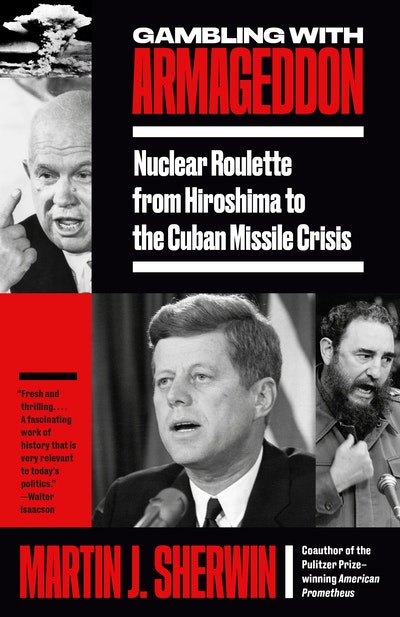[]
Play sample
- Published: 16 March 2022
- ISBN: 9780307386335
- Imprint: Knopf US
- Format: Paperback
- Pages: 640
- RRP: $37.99
Gambling with Armageddon
Nuclear Roulette from Hiroshima to the Cuban Missile Crisis
Formats & editions
Buy from…
- Published: 16 March 2022
- ISBN: 9780307386335
- Imprint: Knopf US
- Format: Paperback
- Pages: 640
- RRP: $37.99
"Riveting. . . . Sherwin provides a fresh and thrilling account of the Cuban Missile Crisis and also puts it into historical perspective. . . . A fascinating work of history that is very relevant to today's politics." --Walter Isaacson, author of Leonardo da Vinci
"Intricately detailed, vividly written, and nearly Tolstoyan in scope." --Publishers Weekly (starred review)



